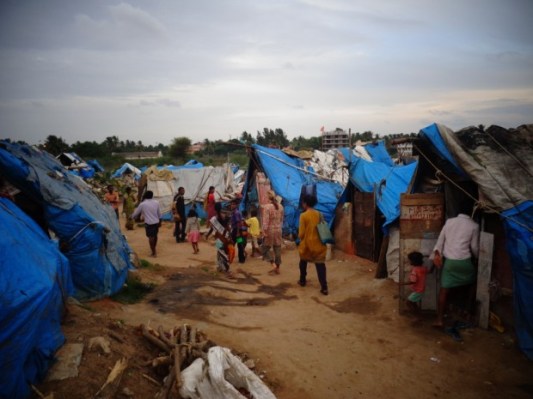The man who helped coordinate the technology response to Superstorm Sandy has moved his attention to another emergency situation: India’s decaying social infrastructure. Menlo Ventures partner Karl Mehta has personally funded a new website codeforindia.org connecting western-educated, Indian-descended software engineers with not-for-profits working on the subcontinent.
Also referred to as Desi (a Sanskrit word describing the Indian diaspora), hundreds of American and international coders have already volunteered for the site, and created two apps, including “adopt-a-school” which allows citizens to get involved with their local school. Developers and social groups can organise themselves on a wiki (which currently features six projects, and an empty discussion page) on projects across four focus areas; education, entrepreneurship, food and water, and health and sanitation.
The intention is to funnel tech skills to where they are sorely needed: in India, where social workers are solving problems in a community but don’t have the resources to scale to other parts of the state or country.
“We actively seek out local partners whether it’s in Bopal, Bihar, or Kashmir, and tell them that we’ll be your tech backbone,” Mehta said. “The reality is there are millions of NGOs who have good intent and doing good work but have a very poor understanding of technology and lack the resources. That’s part of the reason we have many NGOs but very few operating at scale.”
While the community was seeded with Desi American engineers from Mehta’s own personal networks, he hopes that developers from all over the world will participate, including India. If required, he has committed to spend millions of dollars of his personal wealth to sustain the project which would primarily go to hosting costs.
While codeforindia has partnered with two key Indian organisations whose networks span the country, there is still a question mark over who will support and maintain the apps once they have been released. It is often the case in India that social projects supported by western goodwill die out once the initial hype wanes and the volunteers go home. Mehta believed that the developers would continue to stay involved in a project.
However, if the exercise works it could mean much more to the country than simply solving a social problem. In India, the biggest startups and businesses are usually not the ones with the coolest technology or flashiest product but rather the ones that best solve the most pressing, immediate need. RedBus — which was recently acquired by Ibibo — developed a one-stop shop for customers to reliably and safely buy bus tickets from most operators in India; FlipKart created the cash-on-delivery delivery method to allow people without credit cards to shop online; and classifieds website JustDial has compiled the most comprehensive listing of Indian businesses, even outranking Google for accuracy.
Picked as a White House Presidential Innovation Fellow by the Obama administration, Mehta got the idea for the coder matchmaking site during the Superstorm Sandy response effort, when he claimed to help manage the project which deployed techies to create live data of the gas stations that were open/closer and where electricity was available. For the following month, he also liaised with the White House, FEMA, and various agencies on this tech piece.
The developers became a focal point of collaboration.
“We created live data to show which gas stations are opened or closed, what areas have electricity, etc. We were co-ordinating with the private sector, government departments and agencies, and the people on-the-ground, which gave me the first real insight into how technology is the common to solve the problem,” Mehta said.
He hopes to replicate the same model in India, where the government is usually the barrier, not enabler, of change.
[Image credit Pollinate Energy]
